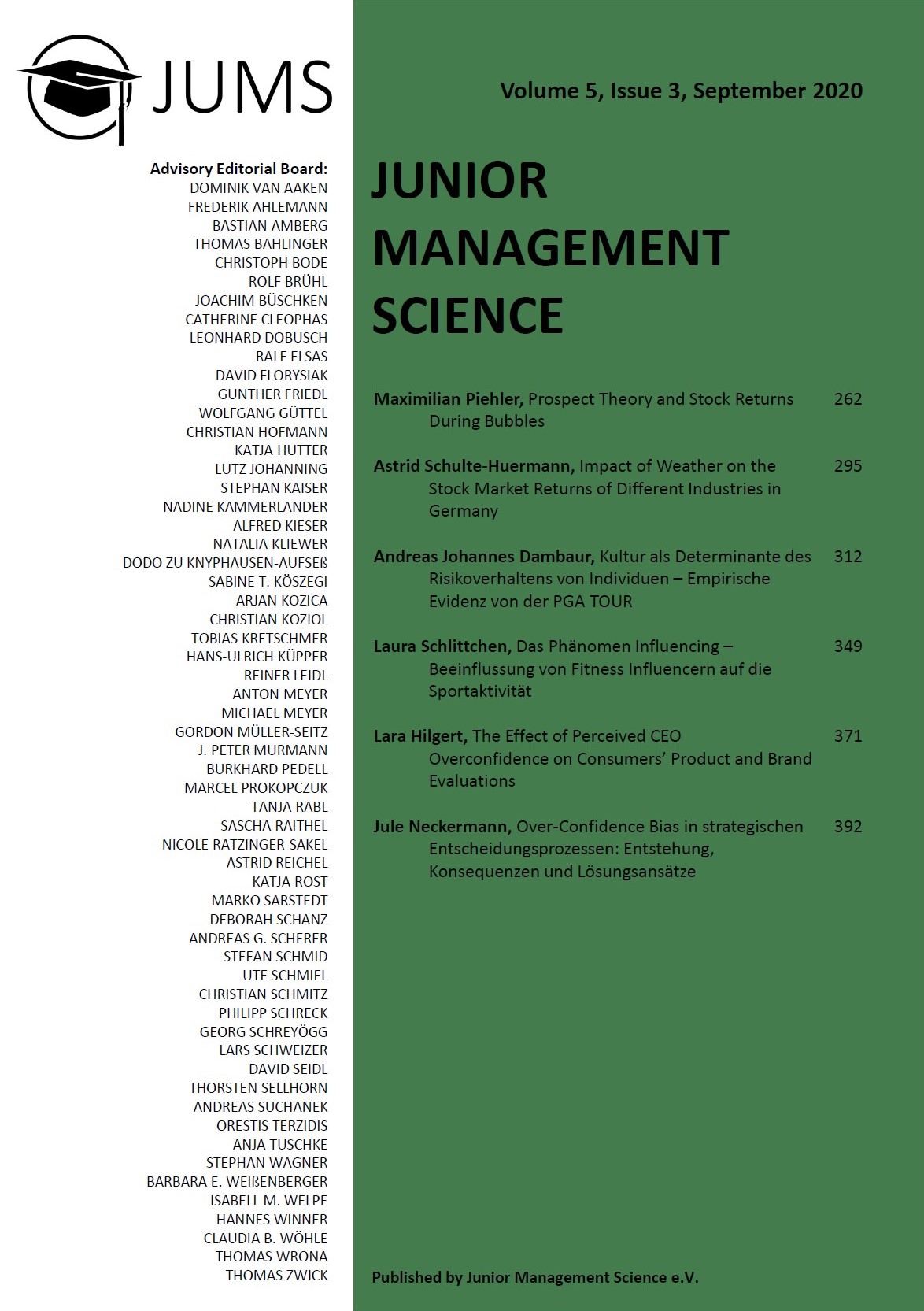Abstract
Since managers often overestimate themselves and their decision-making ability, wrong decisions and serious crises for companies occur time and again. In this thesis, this distortion caused by overestimation of self, the over-confidence bias, will therefore first be incorporated into the context of strategic decision-making processes. In particular, it is shown that the cognitive bias due to overconfidence does not only refer to one phase of the decision-making process; instead, an overconfidence results from a multitude of other cognitive biases, situational factors, and various motivational and physiological states and thus represents a complex construct in the research. In the context of this thesis, we will therefore also investigate which influencing factors lead to the development of the bias and which opportunities, but also risks, can arise from this. In order to counteract these risks, this thesis also presents possible solutions and debiasing techniques that can tie in with previous research results from psychology and economic research and reduce the over-confidence bias in strategic decision-making processes.
Keywords: Overconfidence; strategische Entscheidung; kognitive Verzerrungen; Debiasing.

This work is licensed under a Creative Commons Attribution 4.0 International License.
Copyright (c) 2020 Junior Management Science e.V.

